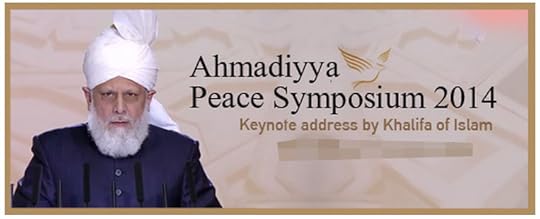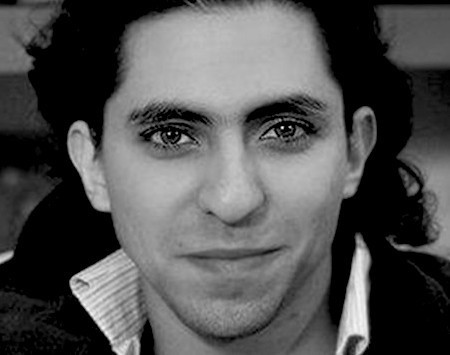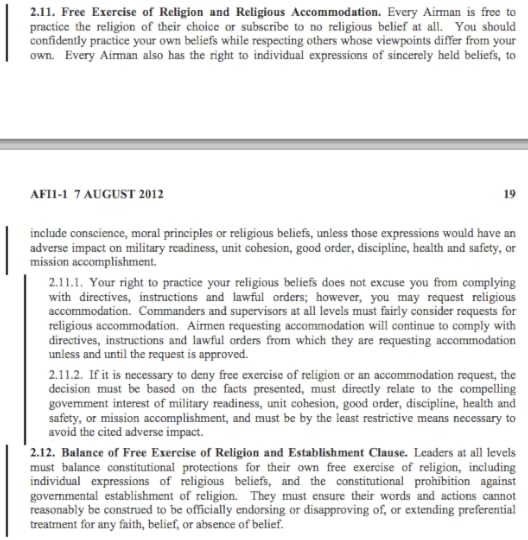Hemant Mehta's Blog, page 1872
November 18, 2014
Kirk Cameron Finds It “Really Hard” to Give the Benefit of the Doubt to “Enemies” Who Criticize His Video to Women
Last week, actor and self-appointed culture warrior Kirk Cameron, while promoting his newest film Saving Christmas, took to his Facebook page with a very special message for the women-folk. It boiled down, more or less, to: stay home to cook, decorate, and be extra joyful… unless they were seeing his movie, which, of course, they were encouraged to do.
Post by Kirk Cameron.In a video entitled “CALLING ALL MOMS!” he exhorted women to:
… Let your children, your family, see your joy in the way that you decorate your home this Christmas, in the food that you cook, the songs you sing, the stories you tell, and the traditions that you keep. Invite your whole neighborhood into your Christmas and invite the world into our story of our King and his Kingdom.
Lest there be any doubt where this is all leading, he ends with “Join me, and go see Saving Christmas November 14.” Because, you know, Jesus. (Ka-ching!)
Cameron also had a video for men, in which he urged
Post by Kirk Cameron.Our example in our family’s life is so important at Christmastime. So be all in this year.
Reminding men that “Jesus came to serve,” he encouraged viewers to “support the women in your life” by helping out and even giving your wives foot massages. Also…
… Take your whole family and see Saving Christmas this weekend. That would be awesome. You got this!
Because Jesus is the reason for the season. (Ka-ching!)
At any rate, some people took this idea of Dad doing the dishes (rest assured that it’s the “really manly” thing to do!) and Mom cooking, decorating, and singing to mean that Cameron was embracing “traditional gender roles.” In other words, he was implying that women should be stay-at-home moms who decorate, cook, and clean while men are somewhat-awkward-but-supportive of that housework-stuff. Which, really, sounds like a pretty fair representation of both videos, considering that he encouraged only select behaviors from each gender.
Or, put another way, people were “twisting” Cameron’s words. At least, so it was decided on Fox News’ Outnumbered, in an interview with Cameron.
The first part of the discussion revolved around praise for the “purity” movement and the Duggars, but it quickly turned to the reactions to his Facebook comments. Sandra Smith, one of the hosts, reassured Cameron that she “knows what [he] meant,” but did wonder, at first, if he had a problem with working women (he shook his head “no”). She asks him to explain, specifically, “what did you mean?”
This would have been a great time for Cameron to clarify how, exactly, his comments were taken out of context.
Instead, the nearest he came to an explanation was to note that his stay-at-home wife works with him on movies. He then spent some time complaining about the “offensive” nature of implying that a mother staying at home “is somehow less than [a woman] carrying a briefcase and having a job professionally.” Which would have been a perfectly serviceable response to a different question. Alas, here, it was squandered on a straw man, as the controversy didn’t involve belittling stay-at-home moms at all. Rather, the criticism was aimed at the seeming implication that only stay-at-home moms were doing right by their families. Which his response did nothing to address.
The fact that Cameron didn’t actually explain what he meant didn’t seem to bother his hosts, however. They continued as if he had addressed the concerns, assuming his critics had maliciously “twisted” his words. This culminated in an inquiry as to whether or not he thought the “misrepresentation” of what he had said was “intentional, or… a misunderstanding.” He answered in fine, smug form:
So the tenet of my faith says “love your enemies,” right? “Treat others the way you want them to be treated,” right? That’s the bottom line. And so I want to give them [people "misrepresenting" his comments] the benefit of the doubt, and say, “yes they just misunderstood.” But it’s really hard.
Which, really, is an admirable reply, if only for how neatly he bundled both piety and persecution into one response: uppity women are making his life difficult as he fights for Jesus, but, Lord knows, he’s trying to forgive them!
Now if only he could have remembered to add that he was praying for them…
When Influential Muslims Speak Out Against Islamist Terrorism, Do the Media Ignore Them?
Qasim Rashid, who writes for the Huffington Post, is frustrated with the mainstream media (join the club).
There exist two scenarios where no one can hear you scream. The first is of course, in space because there’s no oxygen. And the second is on Earth, but only if you’re a global Muslim leader condemning ISIS and promoting universal religious freedom.
Such was the result of the landmark address His Holiness the Khalifa of Islam, Mirza Masroor Ahmad, delivered last week in London before 1,000 dignitaries, politicians, faith and thought leaders, and academics at the 2014 Ahmadiyya Muslim Peace Symposium.
To Mr. Rashid’s chagrin, the event didn’t get a ton of press, despite the fact that Mr. Ahmad condemned forced conversions (“all people are free to believe or not to believe”) and, without naming names, called upon “certain powers,” including, possibly, “oil-rich states,” to stop financing extremist groups. Admittedly, that’s decent-to-good stuff.
The term “His Holiness” appears 13 times in Rashid’s 800-word article, by the way, so it’s fair to say that he’s quite the fan.
And why wouldn’t he be? Like Sufi Islam, Ahmaddiyya Islam is generally a peaceful faith; a key website of the movement has the URL LoveForAllHatredForNone.org. Works for me.
But here’s the rub: the Ahmadi sect is also far outside the Muslim mainstream, having, generously speaking, between 10 to 20 million followers worldwide – between 0.6 and 1.2 percent of the world’s Muslim population. After a doctrinal schism a hundred years ago, most Ahmadis now belong to either the Ahmadiyya Muslim Community, led by Mirza Masroor Ahmad, or the smaller Lahore Ahmadiyya Movement. But (wouldn’t you know it) there are various schools of Ahmaddiyya Islam, and at least six other contenders who claim to be the Ahmadis’ legitimate leader.
Collectively, the Ahmadis are to Islam roughly what Mormons are to Christianity: a 19th-century fringe faith that’s pretty alien to (give or take) 95 percent of the main body of believers.
But while Mormons can worship in relative peace, being an Ahmadi means risking persecution and death. Especially in Pakistan, Ahmadis are reviled and attacked by “real” Muslims (of the Sunni and Shia variety), as we’ve documented on this blog several times. And it’s not just devout street goons who take part; it’s the government. A 1984 Pakistani law declared that Ahmadis are non-Muslims; and that they can be jailed for three years for “posing as a Muslim” (which is held to be the case if they read or recite the Qur’an) or for “outraging Muslims’ feelings” (we know how hard that is).
In that context, the true-enough words of Mirza Masroor Ahmad carry a bit less weight than Qasim Rashid is comfortable acknowledging, no matter how many times Rashid calls Ahmad “His Holiness” and, preposterously, “the Caliph of Islam.”
Look: I’m grateful to any Muslim, fringe or otherwise, who openly and strongly condemns Islamist violence. If he or she has a substantial following, so much the better. And yes, there’s some truth to what Rashid says. The media, which (rightfully) report on actions more than words, are more inclined to feature the murderous evil that is the so-called Islamic State, than to cover a peaceable speech by a low-visibility religious leader.
But let’s not get carried away. Mirza Masroor Ahmad’s address, delivered at a symposium organized by his own movement, was hardly a major news event that the media maliciously chose to ignore. It got about at much press as a presentation by LDS Church president Thomas Monson would. Due to their comparatively small sects and the pariah status of their beliefs among mainstream people of faith, that’s just the way it is.
I’d be chuffed if Ahmaddiyya Islam grew and eventually began to dwarf the much more dangerous forms of Islam advanced by conservative Sunnis, Shia, Salafists, Wahhabis, and so on.
I’d also be pretty happy if I won the lottery.
Despite his fancy honorifics, Mr. Ahmad is, alas, on the outside. Though it does help when people like him speak out, Islam has to be reformed from within.
We’re waiting.
Atheist Bus Ads Go Up in Washington State
The newly-formed Mid-Columbia Coalition of Reason just announced the purchase of six king-size ads on the sides of Ben Franklin Transit buses in order to introduce themselves to the locals:
“We want to make our presence in the community known,” said Jennifer Goulet, coordinator of the Mid-Columbia Coalition of Reason.
Goulet added: “Non-theistic people are your family members, friends, neighbors and co-workers. We may not believe in a deity or the supernatural, but we are compassionate, ethical members of this community. We would like to encourage local atheists and agnostics to join us in exercising our freedom to be open about our views. If you are deity-free in the Tri-Cities, know that you are not alone.”
The bus ads, which will be up through mid-December, cost $5,000 and were funded by the United Coalition of Reason, a group that has now placed signs in 37 states in addition to the District of Columbia.
So far, there are no signs of vandalism or bus drivers refusing to do their job because of the presence of the ad.
In Idaho, Parents Who Commit Faith-Based Homicide Are Immune from Prosecution
We’ve heard the stories of those poor children in Oregon who died after their parents, on account of their religious faith, refused to take them to doctors. The kids died from preventable causes because their health was put in God’s hands instead of the care of those who knew what they were doing. (And who actually existed.)
15-month-old Ava Worthington. 16-year-old Neil Beagley. 8-month-old Alayna May Wyland. 9-hour-old David Hickman died that way.
Last year, thanks to a report by KATU reporter Dan Tilkin (below), we learned that things were even worse in neighboring Idaho.
Shane Dixon Kavanaugh at Vocativ has gone even more in depth as to what’s happening there. It’s incredibly disappointing:
… because of the profound chilling effect Idaho’s religious exemption laws have had on the authorities who might enforce them, those claims have never been put to the test. Not a single criminal charge has been filed in cases of religion-based medical neglect in the state since legislators enacted the law four decades ago. Boise police declined to even report two faith-healing parents in 2010 after they refused medical care for their critically injured son, citing the religious exemption statute. The following year, Canyon County Coroner Vicki DeGeus-Morris told reporters that she had stopped doing autopsies on children who belonged to the Followers of Christ altogether.
Kavanaugh also reminds us that Idaho has the worst laws in the nation when it comes to faith being used as a Get Out of Jail Free card:
Of the states that still provide a religious defense to felonies against children, Idaho remains in a league of its own. It is one of only six states that provide a religious exemption to manslaughter, negligent homicide or capital murder (the others being Arkansas, Iowa, Louisiana, Ohio and West Virginia). But of those six, it is the only state where children are known to have died at the hands of faith-healing parents in the last 20 years.
The laws need to change and residents need to pressure their representatives to make those changes — before more children die at the hands of their religious parents.
(Portions of this article were published earlier)
The Internet is Forcing Religious Groups to Address Unsavory Aspects of Their History
There is a sort of online adage I’ve seen more than a few times, that the Internet is the place that gods go to die. Amanda Marcotte, in a piece republished by Salon, makes the argument that it’s at least a way-stop on the road.
While the piece contains a number of fascinating points, of particular interest are the faith leaders’ views on (and response to) the availability of information and dissenting opinions afforded by the Internet. She cites, for instance, the Mormon Church’s recent admission of certain unpalatable facts about its founder and early practices — and the reason that such facts were finally acknowledged by the church.
In September, the Church of the Latter Day Saints instructed churches to share a set of online essays (about topics from the Mountain Meadows Massacre to early church polygamy) with questioning Mormons. The essays, they were told, were
… presented as a counter to “detractors” who “spread misinformation and doubt.”
While there are plenty of detractors who will share their opinions offline, there’s little doubt that the bulk of the detractors plaguing the church are explaining their views online, which is why this has become a problem now for a church that used to act like it could exert total control over believers’ access to information. One of the church historians, Steven Snow, openly cited the internet as the source of the criticisms. “There is so much out there on the Internet,” he told the New York Times, “that we felt we owed our members a safe place where they could go to get reliable, faith-promoting information that was true about some of these more difficult aspects of our history.”
Now, the fact that an organization posturing as a moral authority would only admit unflattering facts when they became too well known to suppress should cause more than a little thought for members. That, though, is another post. Suffice it to say, the Church of Jesus Christ of Latter-day Saints recognized that the information it had hitherto downplayed or concealed was out there, on the Internet, readily available. They had, then, the choice to acknowledge it and hope that the faith-promoting nature of the discussion of these “difficult aspects” of Mormon history was sufficient to quell doubts… or leave people to find out on their own, with no apologist spin to put things into a “safe” perspective.
Of course, it would be folly to suppose that the Mormon Church finds itself in a unique position as a religion having to account for inconsistencies or questionable behavior. Other religious organizations seem to be catching on to the threat that the Internet poses. Marcotte writes:
At a recent conference on technology held by the Archdiocese of Los Angeles, Monsignor Paul Tighe expressed concerns that the Catholic Church is losing out by not being more aggressive online. “If the church in some way is not present in the digital, we’re going to be absent from the experience and from the lives of many people,” he said. “If we withdraw, then we’re leaving those areas to the trolls. We’re leaving it to the bullies.”
Again, it’s hard to believe that trolls and bullies, as irritating as they may be, are the real issue here — trolling is aggravating, but it’s not very persuasive. No, the real threat to the faith is people making strong cases against the Catholic Church and religion in general. Some of those cases are boldly stated and some are more polite and accommodating, but either way, they are real arguments and far more threatening to religion than some trolls saying stupid stuff that is best ignored.
(My own personal experience is very much in line with Marcotte’s suggestion: trolls affected my beliefs in a minimal fashion if at all, but thoughtful, reasonable people armed with facts and clear logic had a profound impact.) I have to agree. The Internet is not a threat to organizations that lay claim to absolute truths because of ignorant, hateful people or misinformation; the Internet is a threat to those people for precisely the opposite reasons: because it gives immediate access to new information, new perspectives, and new communities. It provides a forum for doubters to explore their doubts and for questioners to ask their questions. It provides the information and arena to challenge what religions have claimed as absolutely true. “Because we say so,” isn’t a sufficient answer anymore, when five minutes on Google can provide you with significant evidence and argument to the contrary.
“The Internet’s beauty,” Marcotte writes,
… is it makes satisfying basic curiosity as easy as typing some words into a search bar. Odds are that’s a temptation fewer and fewer believers will be able to resist.
That is beauty indeed.
(Image via Shutterstock)
There’s No Reason to Deny This High School Student Her Christian Club
At Wantagh High School in New York, a student says the principal is denying her attempt to form a Christian club:
Liz Loverde
Wantagh High School sophomore Liz Loverde, 15, said she presented her principal with a proposal to form the club in September but was told she could not because it would be illegal. “I felt terrible,” Loverde said Monday. “I felt really disappointed. It was such a good idea.”
That’s crazy. The Equal Access Act of 1984 says that if a public school has any extracurricular clubs, it can’t reject a club on the basis of religion (provided all the proper paperwork is completed). We see this all the time when it comes to atheist clubs.
And even though I can’t recall Liberty Institute ever saying, “The Freedom From Religion Foundation is right,” I’ll say it here: Liberty Institute is right; there’s no reason for the school to say no to a Christian club. They sent the district a letter on Monday warning that a lawsuit could be forthcoming if school officials didn’t comply.
We therefore demand that the school reconsider its position, approve Liz’s club proposal, and grant official recognition to Dare to Believe. To the extent approval by the Board of Education is necessary, the Board should immediately review Liz’s proposal, approve it at its next meeting on this Wednesday, November 20, and permit Dare to Believe to begin meeting as a recognized student club no later than Monday, December 1.
For some reason, commenters online are telling Loverde that she should respect church/state separation and form this club at her church. Which is completely ignorant. She has every right to form a Christian club, just as other students have a right to form a Muslim or atheist club. It’s just that simple.
I’m genuinely surprised to hear any school official claim that a religious club would be unconstitutional. That’s the sort of thing you learn about in Principaling 101. (Edit: I should mention the school says the club is simply “under review,” though it’s unclear how long that process takes and if what’s happening in this instance is typical of all new clubs.)
In any case, best of luck to Loverde. I hope she gets her club soon.
(Image via Liberty Institute. Thanks to Jaynee for the link)
This Video Featuring the Children of Saudi Blogger Punished for “Insulting Islam” Will Bring Tears to Your Eyes
30-year-old Saudi Arabian blogger Raif Badawi was punished last year for starting a progressive website that called for, among other things, religious tolerance and women’s rights. That was insulting to Islam, said his critics, and he now faces 10 Years in jail along with 1,000 lashes.
In a video created by Amnesty International Canada, his children narrate a letter they’ve written to their father… and… um… I’d tell you more but there’s something liquid-y streaming down my face.
The part at 2:21, especially, is just heartbreaking…
I don’t know if it’ll help, but you can easily write a letter to the King of Saudi Arabia right here urging him to drop all charges against Badawi.
An Atheist Chats with a Young Muslim Woman About Religion… Then Deconstructs the Entire Conversation
Once again, Anthony Magnabosco has made a video in which he speaks to a stranger about his or her religious beliefs for just five minutes — and then deconstructs the whole conversation afterwards.
This time, he spoke with a young Muslim woman:
The impetus for this series on street epistemology comes from Peter Boghossian‘s book.
If any parts stand out, please leave the timestamps/summaries in the comments!
November 17, 2014
Friendly Atheist Podcast Episode 29: Jeff Lewis, Illinois Christian Home Educators
Our latest podcast guest is Jeff Lewis, a board member of the Illinois Christian Home Educators (ICHE), a group that promotes faith-based home-schooling and provides a variety of resources to Christian parents who want to do just that.
Why chat with him? Because we wanted to have a conversation with someone whose beliefs directly conflict with our own. Jeff, knowing where we stood on topics like Creationism, was still kind enough to say yes to our invitation.
By day, he’s an attorney who specializes in topics including estate planning and guardianship issues. He and his wife have five children, all of whom have been home-schooled.
We asked him on the show to give us insight into a world we know little about, not necessarily to debate him on various aspects of home-schooling. So you’ve been warned. There were parts of the conversation that will likely infuriate you and parts that turned a bit combative. There were also things Jeff said that we strongly disagreed with (and vice versa), but we made a conscious decision not to turn everything into a debate. You may disagree with that decision, but there you go. I still feel there’s value in listening and learning what his motivations and concerns are, instead of just having a debate about his beliefs.
Among other things, we spoke with Jeff about whether homeschooling should be regulated by the state, why public schools are a problem for some Christians, and what to do about kids who fall through the cracks.
This episode is sponsored by Be Secular. Readers of this site can get a 10% discount on products by using the promo code “Friendly”!
We’d love to hear your thoughts on the podcast. If you have any suggestions for people we should chat with, please leave them in the comments, too.
You can subscribe to the podcast on iTunes, get the MP3 directly, check it out on Stitcher, or just listen to the whole thing below.
And if you like what you’re hearing, please consider supporting this site on Patreon and leaving us a positive rating!
New Air Force Standards Soften Prohibitions on Proselytizing
Late last week, the U.S. Air Force updated its Standards. Usually, updates make things better, but the changes regarding religious exercise, while superficially sound, leaves much to be desired.
Here’s what the 2012 version of Standard 2.11 said:
2.11. Government Neutrality Regarding Religion. Leaders at all levels must balance constitutional protections for an individual’s free exercise of religion or other personal beliefs and the constitutional prohibition against governmental establishment of religion. For example, they must avoid the actual or apparent use of their position to promote their personal religious beliefs to their subordinates or to extend preferential treatment for any religion. Commanders or supervisors who engage in such behavior may cause members to doubt their impartiality and objectivity. The potential result is a degradation of the unit’s morale, good order, and discipline. Airmen, especially commanders and supervisors, must ensure that in exercising their right of religious free expression, they do not degrade morale, good order, and discipline in the Air Force or degrade the trust and confidence that the public has in the United States Air Force.
The 2014 version looks very different:
2.11. Free Exercise of Religion and Religious Accommodation. Every Airman is free to practice the religion of their choice or subscribe to no religious belief at all. You should confidently practice your own beliefs while respecting others whose viewpoints differ from your own. Every Airman also has the right to individual expressions of sincerely held beliefs, to include conscience, moral principles or religious beliefs, unless those expressions would have an adverse impact on military readiness, unit cohesion, good order, discipline, health and safety, or mission accomplishment.
2.11.1. Your right to practice your religious beliefs does not excuse you from complying with directives, instructions and lawful orders; however, you may request religious accommodation. Commanders and supervisors at all levels must fairly consider requests for religious accommodation. Airmen requesting accommodation will continue to comply with directives, instructions and lawful orders from which they are requesting accommodation unless and until the request is approved.
2.11.2. If it is necessary to deny free exercise of religion or an accommodation request, the decision must be based on the facts presented, must directly relate to the compelling government interest of military readiness, unit cohesion, good order, discipline, health and safety, or mission accomplishment, and must be by the least restrictive means necessary to avoid the cited adverse impact.
2.12. Balance of Free Exercise of Religion and Establishment Clause. Leaders at all levels must balance constitutional protections for their own free exercise of religion, including individual expressions of religious beliefs, and the constitutional prohibition against governmental establishment of religion. They must ensure their words and actions cannot reasonably be construed to be officially endorsing or disapproving of, or extending preferential treatment for any faith, belief, or absence of belief.
Gone in the latest version is the section from 2012 explicitly saying,
[Leaders at all levels] must avoid the actual or apparent use of their position to promote their personal religious beliefs to their subordinates or to extend preferential treatment for any religion. Commanders or supervisors who engage in such behavior may cause members to doubt their impartiality and objectivity. The potential result is a degradation of the unit’s morale, good order, and discipline.
That used to say Don’t do it at all, and here’s why!
Now, it’s more like Try not to… but if you do it, do it very subtly!
Jason Torpy of the Military Association of Atheists & Freethinkers explains the implications of the changes:
The new Air Force Instruction 1-1 is published with eliminations of the more inclusive regulations in the original publication. Language explicitly restricting commanders and chaplains from proselytizing has been removed. However, the language still acknowledges the importance of the establishment clause alongside the free exercise clause. So while important restrictions against rampant evangelism has been removed, the language itself still sounds reasonable. But even a few words can make a difference. Where the old regulation protected those in need from those in power, the new regulation protects the powerful.
You can see a nice summary of all the relevant changes right here.
Hemant Mehta's Blog
- Hemant Mehta's profile
- 38 followers















